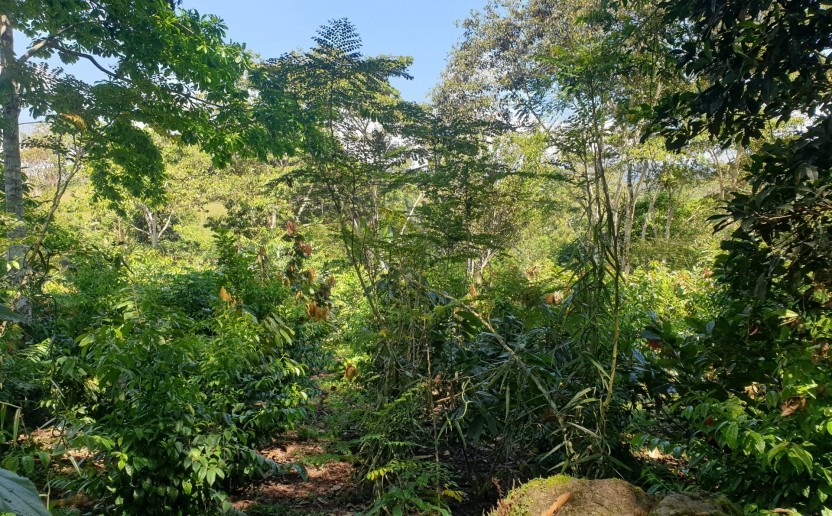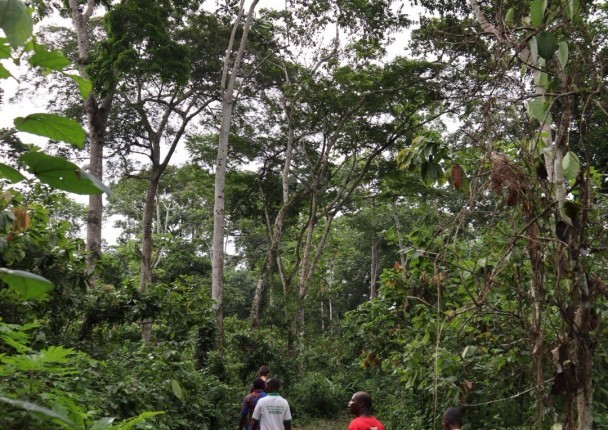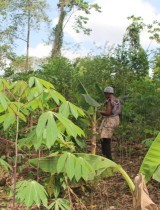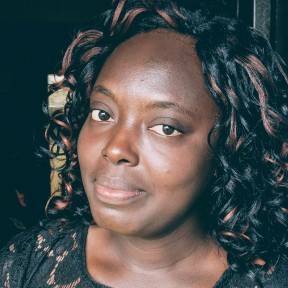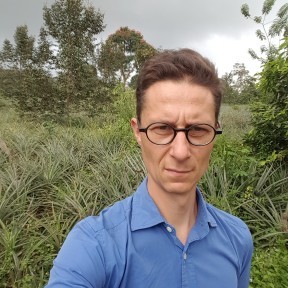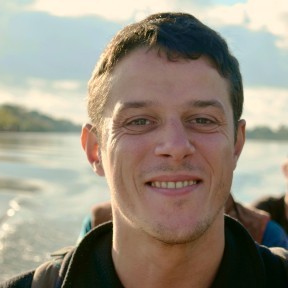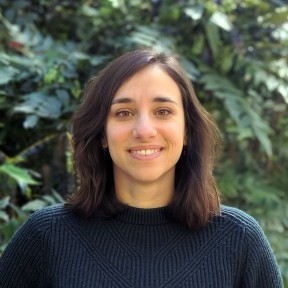TERRI4SOL - Implementation of a multifunctional management scenario of agricultural, forestry and post-forestry territories in the Mé region
Main goals
Collaborative construction of scenarios, implementation in the plots and evaluation of both climatic and socio-economic effects.
Specific objectives
The project is built in complementarity with the Cocoa4Future project and aims to work on low-carbon rural development scenarios. The idea is to co-construct low-carbon development scenarios with beneficiary communities, implementing them to evaluate climatic and socio-economic impacts afterwards.
Beneficiaries
- Villages of Bieby, Mebifon and Mopodji
- About 450 producers supported in the implementation of low-carbon practices on their farms
Results
R1. Local analysis of regional scenarios and co-construction of local consensus scenarios (focus groups, participatory modeling workshops)
R2. Analysis of local socio-economic and environmental factors as well as impacts of each scenario for 3 villages included in the project following a participatory approach to formalize local scenarios of changes, practices and land use defined with the concerned populations
R3. Assessment of carbon and socio-economic impacts using a tool already in place that updates model parameters with data on socio-economic parameters collected and biophysical data recorded by demonstrators
R4. Support for producers who have implemented at least one low-carbon practice in their farming system
Activities
A1. Completion and update of agrarian diagnostics carried out by Nitidæ within the framework of the Mé REDD+ Project to provide necessary information for the design of local scenarios, low-carbon demonstrators, support to producers and monitoring-evaluation of component's effects by developing partnerships with the company Inprobois for production of wood in agroforestry
A2. Deployment of low-carbon demonstrators in each of the villages targeted by the project and incorporation of various pilot plots of low-carbon practices to implement in situ the strategy of preservation and restoration of organic carbon stocks (key land use transitions, technical itineraries)
A3. Implementation of measures for the support of producers in low-carbon practices, based on activities already carried out by Nitidæ within the framework of the MRP, in particular regarding the delivery of land certificates so that producers can invest without fear in low-carbon practices with an impact that is often deferred in time
A4. Implementation of demonstrators and accompanying measures that have improved carbon footprint, socio-economic and food security indicators in the 3 targeted villages
Related people
Rolande Kouassi Ettien
A botanist by training, Rolande holds a Master 2 in Plant Systematics, Ecology and Biodiversity. She joined the Nitidae team in 2018 and mainly brings her expertise in the areas of agroforestry (SAF cocoa trees, floristic inventories, ecosystem services, etc.), organic agriculture and fair trade (cocoa certification reference EOS, FFL label, documentary review and audit). After holding the position of Agro-Botanist within the Mé REDD+ Project, she is now in charge of coordinating the activities carried out by Nitidæ within the Cocoa4Future and Terri4Sol projects.
See more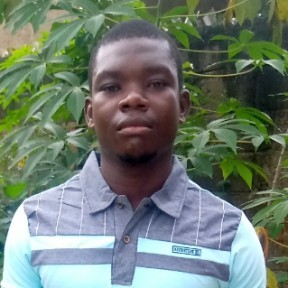
Justin Kambiré Beh
Graduated with a Master's degree in "Ecology and Sustainable Management of Ecosystems", he brings his expertise in forestry, agroforestry, systematics and in agricultural advice and techniques. He has worked as a technician and trainer for producers on good agricultural practices in Soubré for GRIEPE, with Icraf as a botanist consultant and on the Payment for Environmental Services (PES) model for Cargill
Cédric Rabany
Holder of a Master of Science, "Agricultural Engineer and territories development" from the Institut Supérieur d’Agriculture (ISARA Lyon), he brings his expertise in agro-food/agricultural sectors' analysis and development, strengthening of supplychain actors (producers, private/public actors, agro-food industries...), socio-economic analysis of agricultural chains and his great knowledge of companies in these markets
See moreBenjamin Garnier
Agricultural Engineer, specialised in "quality of the environment and resources management", from the French National School of Agricultural Science and Engineering of Toulouse (INP ENSAT). He brings his expertise in feasibility studies for investment funds, agricultural markets studies and analysis of value chains
See moreClovis Grinand
PhD in Functional Ecology and Agronomic Sciences (SupAgro, IRD and CIRAD) and specialized in Localized Information Systems for Spatial Planning (AgroParisTech), he is an expert in land use change monitoring using remote sensing, digital soil mapping and spatial modeling applied to forestry, agronomy and landscape ecology. He is the author of numerous international scientific publications.
See more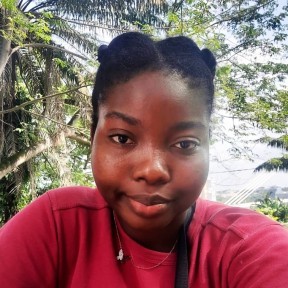
Elvira Dje Lou
Based in Abidjan, she holds a BTS in Finance Accounting and Business Management from the private University IVESTP
Beatriz Bellón
With a doctorate in geomatics (AgroParisTech/CIRAD), she brings her expertise in remote sensing and modeling to various R&D projects of the association, and in particular on the biodiversity and degradation and restoration components of forest landscapes. At the same time, she carries out studies and technical support (capacity building, technology transfer) within the association. She joined the N’Lab in Nitidæ in 2024 after completing a thesis on the mapping of agricultural systems, and five years of postdoctoral research on the links between landscape changes and biodiversity in different tropical countries. Her research work has resulted in operational mapping and modeling tools and numerous scientific publications of international rank.
See moreTERRESIL - Territorial approach as a le…
